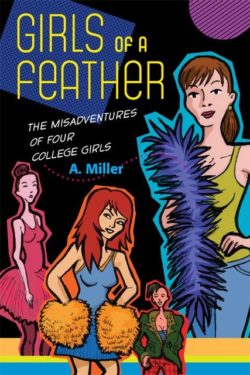 My next book will be a “little” (of course!) punctuation book, which I am hoping will be out in June or so . . .
My next book will be a “little” (of course!) punctuation book, which I am hoping will be out in June or so . . .
To warm up, here is a “little” punctuation quiz. Actually, I planned a punctuation quiz for a couple of weeks ago because I thought it was National Punctuation Day. I was a “little” confused; it was National Grammar Day. National Punctuation Day is in September.
Answers to this quiz will be at the end . . . after you scroll down a bit. Explanations will be provided next week.
1. Is this sentence correctly punctuated? I will be late for the meeting, please save me a seat.
2. This must be (James’/ James’s) book.
3. Is this sentence correctly punctuated? I am here, therefore, I am not there.
4. Punctuate this sentence: Did he ask, Are we there yet
5. Is this sentence correct? He said, “I heard the song ‘Forget You.”’
6. Is this sentence correct? Why or why not? “The Hobbit” is my favorite book.
7. This book is from the (1940’s/ 1940s).
8. Punctuate this sentence: Please bring two shirts, blue, black, and brown pants, and black and blue socks.
9. Punctuate this sentence: She said I can’t go because I have to stay in to read Romeo and Juliet.
10. Is this sentence correctly punctuated? My sister and her friends are coming to visit.
11. Punctuate this sentence: Bob was usually a quiet man however he screamed upon entering the room.
12. Punctuate this letter salutation: To whom it may concern
13. Is this sentence correctly punctuated? It is a cold rainy day.
14. Is this sentence correctly punctuated? This book which is written by William Golding is my favorite.
15. Is this sentence correctly punctuated? The book that is on top of the coffee table is next on my reading list.
16. Is this sentence correctly punctuated? I decided not to cook dinner and went to the movies instead.
17. Punctuate this sentence: I was born on August 10 1980 in Lincoln Nebraska.
18. Punctuate this sentence: The only four ingredients in this recipe are sugar vanilla eggs and flour.
19. Punctuate this sentence: I did not do very well on the test however so I failed the course.
20. Punctuate this sentence: Yes Elaine the party is at my house.
21. Punctuate this sentence: My address is 1487 Markham Place Boston Massachusetts 01987 please send my mail there not to my old address.
22. Is this sentence correctly punctuated? I want to see that movie, I heard it’s great, but I haven’t had the time.
23. Is this dialog correctly punctuated?
She screamed, “I have had enough of this . . .”
“Calm down,” he interrupted.
Please scroll down for the answers.
Keep scrolling . . .
Coming next week to Amazon and Kindle (and all other online book and e-book sellers) . . .
Keep scrolling . . .
Keep scrolling . . .
Answers:
1. I will be late for the meeting, please save me a seat. Not correct. Needs a semicolon or period instead of the comma; or you add a conjunction to the comma.
2. This must be James’s book.
3. I am here, therefore, I am not there. Incorrect. Comma after here needs to be a semicolon. (Or you could put a period after here, and initial cap therefore.)
4. Did he ask, “Are we there yet?”
5. He said, “I heard the song ‘Forget You.”’ Correct as is.
6. “The Hobbit” is my favorite book. No. The Hobbit should be italicized rather than in quotation marks.
7. This book is from the 1940s.
8. Please bring two shirts; blue, black, and brown pants; and black and blue socks. Or you could rewrite it somehow.
9. She said, “I can’t go because I have to stay home to read Romeo and Juliet.”
10. My sister and her friends are coming to visit. Correct as is.
11. Bob was usually a quiet man; however, he screamed upon entering the room. You could also put a period after man and capitalize however.
12. To whom it may concern:
13. It is a cold, rainy day. No. You need a comma between cold and rainy.
14. This book, which is written by William Golding, is my favorite. No. The clause beginning with which needs to be set off with commas.
15. The book that is on top of the coffee table is next on my reading list. Correct as is.
16. I decided not to cook dinner and went to the movies instead. Correct as is.
17. I was born on August 10, 1980, in Lincoln, Nebraska.
18. The only four ingredients in this recipe are sugar, vanilla, eggs, and flour. The comma after eggs (the Oxford comma) is optional, but I recommend using it.
19. I did not do very well on the test, however, so I failed the course.
20. Yes, Elaine, the party is at my house.
21. My address is 1487 Markham Place, Boston, Massachusetts 01987; please send my mail there, not to my old address. You could also put a period after the zip code and initial cap please.
22. I want to see that movie, I heard it’s great, but I haven’t had the time. Not correct. You can use dashes or parentheses, but not commas to set off I heard it’s great.
23. Not correct. The ellipsis(…) is used for trailing off. The em dash(long dash) is used for interruption.
She screamed, “I have had enough of this—”
“Calm down,” he interrupted.
Explanations next week . . .




I have a problem in general about putting titles of songs or publications or such like in italics. Italics work only in print. However, when we use a pen (I know how seldom we do, but students still attempt examinations papers using them), it is not possible to write in italics if you were already writing in script. Hence, I would instead use quotation marks or simply regard the title as a proper name and capitalise if the title was short and simple.
Titles of songs are in quotes. However, the rule has always been to underline to represent italics when you are using a pen or pencil.
Aha! It has been so long since I last used an underscore other than for emphasis that I have forgotten about this usage. Thanks.
I know. Who writes by hand???? I know a writer who actually writes his drafts by hand, and I applaud him!
Thanks for the wonderful quiz. I had three wrong. Very sobering indeed.
Up to now, I was used to writing “James'” and not “James’s “.
Is “James’s” British or American English?
If possible, could you please name one or two style guides advocating for “James’s.”
Thanks for the comment and for making me look this up in my style guides! I know it is American English, and I am not sure what the British do. Strunk and White’s Elements of Style says James’s. Chicago Manual of Style also says James’s. The Gregg Reference Manual also says James’s. There are a couple of exceptions: Jesus adds only the apostrophe, as do words ending in -es that have the sound of -ez, such as Xerses and Socrates. And, of course, my grammar books also say James’s! Some of the guides do specify, as I believe I did, that only when you would pronounce it with the extra syllable, you add ‘s.
Thanks! I cover a lot of these issues with my students and I like the variety of examples.
I hadn’t considered a dash for the last one, but your logic makes sense: ellipses show omission or a time lapse, so they’d work better for an unfinished thought than for an interruption.
Thanks for the comment. Yes, I actually learned not long ago that an em dash is used for an interruption, whereas the ellipsis is used for a trailing off. This week’s blog post will further explain the answers of last week’s quiz.
I missed two. I learned from my mistake. Good to know about ellipsis and em dash. I thought they were the same but ellipsis was old fashioned. Thanks for this post!
I’m worried about leaving comments–will you correct them?
Don’t be worried about leaving comments! If you look hard enough, you will probably find a typo in my post or in some reply! Yes, though, I can edit a comment before I approve it! I just learned recently about the dash being used for interruption.
I did really well, Arlene, thanks to your blog posts and lessons!
(Grammarly said I should use “for” and not “to” in the above sentence.)
You are very welcome, and I disagree with Grammarly!It would be “Thanks for your blog posts,” but in the context of what you said, you are correct.
Great quiz, Arlene – thanks.
I interpreted #22 a bit differently, choosing a semicolon or period to follow [movie].
Oh, I didn’t even think of that. Of course you are correct. I was just trying to illustrate that enclosing a complete sentence in commas wouldn’t work. Thanks for the alternative answer!
Number five has the trailing single quote outside the double quotes and is incorrect.
Not quite sure I understand you. I have the single quote that belongs to the song title, since it is a an occurrence of quotes inside quotes. Then I have the double quotes to close the quote. So all together it is a period to end the sentence, followed by a single quote and then double quotes. In American English the period goes inside all quotation marks.
I’m seeing it the same way Dan is, and I wonder if it’s an optical illusion or something related to the way my browser displays the text. The closing pair of punctuation marks appears to be a double quote followed by a single quote.
(I tried to paste a screen shot here, but it didn’t work.)
It is so small on my screen, I can’t even tell which quotation marks go with which! It may appear incorrect on my browser as well, but either way, the period goes inside all quotations marks.
I would italicise the song title (as you have in Question 6) and leave off the single wuotes.
In British English (or, as we call it, ‘English’) you should ONLY use the Oxford comma in lists that contain ‘and’ within the list items; Laurel and Hardy, and Abbot and Costello
Viva la difference between British and American English! In American English we use the Oxford comma in any list. And I don’t know if this is a British/American difference, but song titles are quoted, not italicized. The name of the entire CN would be in italics. Parts of things are in quotes, complete things are in italics.
I did it!!! And quite well. Not perfect, though…
Very interesting exercise, Arlene, to give to advanced students. Could I use it in class? Thanks, again.
You may most certainly use it in class! What level do you teach?
I have written a song for a story entitled Cotton Candy Lovin’. When I use that title in dialogue, it can look strange, and I’m not sure if it’s correct:
“Please sing Cotton Candy Lovin’.”
“Would you sing Cotton Candy Lovin’?”
You are correct. That particular single mark is not really a quotation mark, but an apostrophe that is part of the word lovin’, so it needs to go inside any punctuation.